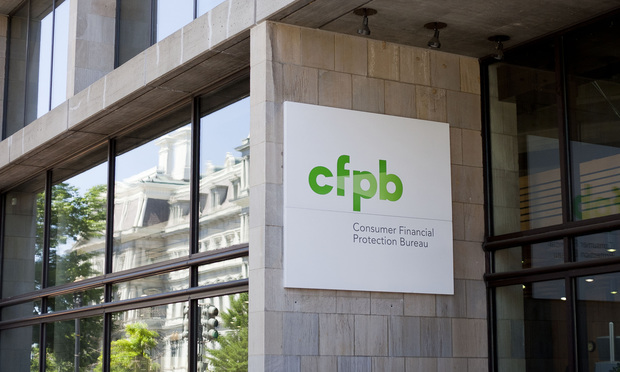Originally published on The National Law Journal. All rights reserved. This material may not be published, broadcast, rewritten, or redistributed.
The Consumer Financial Protection Bureau isn’t exactly riding high right now.
A federal appeals court in October struck down the constitutionality of the agency’s single-director structure, saying the bureau’s sole leadership held “massive, unchecked power.” Republicans in Congress want to fundamentally revamp and refocus the Obama-era agency, creating a bipartisan commission. And the incoming Trump administration isn’t expected to openly greet Richard Cordray, the CFPB director, whose term expires in 2018 but could be cut short much sooner.
Here’s one more headache: a Washington appeals court will in the coming months decide just how far the agency’s investigative power reaches. The centerpiece of the dispute: A trial judge in April said the CFPB had no business trying to squeeze information from a college accrediting firm. The case is moving forward in the U.S. Court of Appeals for the D.C. Circuit.
The challenger, Accrediting Council for Independent Colleges and Schools, on Wednesday urged the federal appeals court to uphold the dismissal of the CFPB subpoenas, which targeted practices tied to accrediting for-profit colleges.
“The bureau’s authority, however, is limited to investigating potential violations of consumer financial laws. The accrediting of for-profit schools has nothing to do with the consumer financial laws,” the accrediting group’s lawyers wrote in their brief. The accrediting council is represented by lawyers from Venable and Whiteford, Taylor & Preston.
The accrediting council’s lawyers wasted no time in their brief to note—on the third page—the D.C. Circuit’s ruling in October that found the structure of the CFPB unconstitutional. The agency has pitched the case to the full D.C. Circuit, which hasn’t yet decided to take up the dispute.
The CFPB, created in the aftermath of the financial crisis, has squeezed more than $3.5 billion for consumers from enforcement activity against mortgage companies, banks, payday lenders and credit card companies. The accrediting council’s lawyers contend the CFPB hasn’t made a case for how the college-accrediting arena falls within the agency’s jurisdiction.
“At no point during the proceedings below did the bureau identify any consumer financial law that it contends addresses, regulates, or even implicates any aspect of the accreditation process or any conduct ‘in connection with’ accreditation,” the council’s lawyers wrote.
The accrediting council told the D.C. Circuit that it’s process “involves volunteer evaluators who review and evaluate their peer institutions.” The volunteers visit colleges, review operations and write reports specific to each institution.
“[T]here is no plausible connection between the identities of the evaluators that the CID has sought and the consumer financial laws that the bureau enforces. The bureau’s net is cast too wide with too little chance of catching relevant information,” the accrediting council’s attorneys said in their court papers.
With support from Republican lawmakers, the accrediting council pushed back against the CFPB’s investigation last year, arguing that its sole regulator was the U.S. Education Department.
The Education Department this year revoked its recognition of the accrediting council after finding that its reviews of for-profit colleges lacked rigor, stripping the organization of the crucial authority to decide whether schools are eligible to enroll students receiving federal financial aid.
Noting that connection between accreditation and financial aid, the CFPB charges in its D.C. Circuit papers that the trial judge, Richard Leon, “failed to recognize the possible connection between lending by for-profit colleges and accreditation.”





